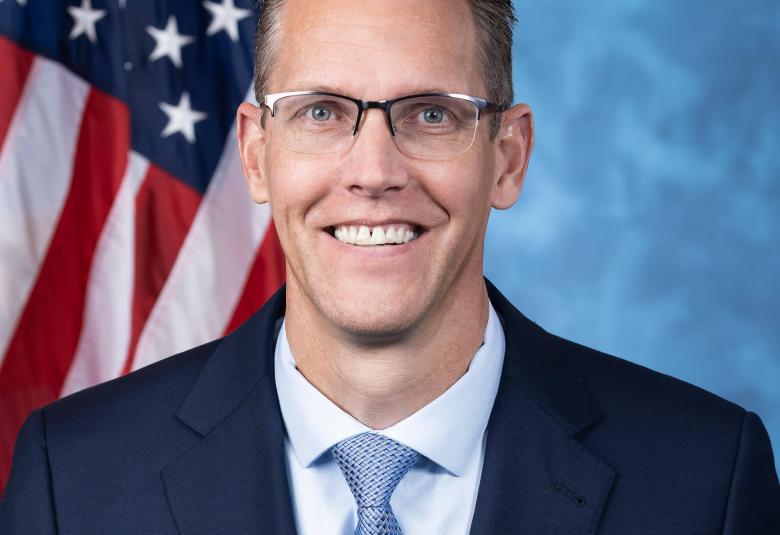Car Dealers Double Down: Renewed Fight Against Electric Vehicle Mandates

Table of Contents
Financial Burden of EV Transition
The transition to an electric vehicle-dominated market presents a considerable financial burden on car dealerships. The upfront costs, reduced profit margins, and the impact on existing inventory and workforce are significant challenges.
High Initial Investment Costs
Upgrading infrastructure to accommodate EVs requires a substantial initial investment. Dealerships must shoulder the costs of installing charging stations, acquiring specialized tools for EV repair and maintenance, and investing in extensive employee training programs.
- Charging Station Installation: The cost varies greatly depending on the number of chargers, their power output, and the necessary electrical grid upgrades. A single fast-charger installation can cost tens of thousands of dollars.
- Technician Training Programs: EV mechanics require specialized training to handle high-voltage systems and complex battery technologies. These programs are costly and time-consuming.
- Inventory Management Changes: Managing EV batteries, which require specific storage and handling procedures, adds complexity and expense to inventory management.
According to a recent industry survey, the average cost of EV infrastructure upgrades for mid-sized dealerships is estimated at $250,000, highlighting the significant financial commitment needed.
Reduced Profit Margins on EVs
Dealerships are also facing reduced profit margins on electric vehicles compared to their gasoline counterparts. This is driven by several factors.
- Increased Competition: The EV market is becoming increasingly competitive, putting downward pressure on prices.
- Government Subsidies: Government subsidies and tax credits, while aimed at boosting EV adoption, can compress profit margins for dealerships.
- Lower Service Revenue: EVs have fewer moving parts than gasoline cars, potentially leading to less frequent and less expensive maintenance, reducing dealership service revenue.
Studies show that the average profit margin on an EV sale is currently 20% lower than that of a comparable gasoline vehicle, impacting dealerships' bottom line significantly.
Impact on Existing Inventory & Workforce
The transition to EVs necessitates changes in inventory management and requires retraining a significant portion of the dealership workforce.
- Specialized Repair Techniques: EV repair requires specialized knowledge and equipment, different from traditional gasoline car repair.
- Updated Sales Training: Sales staff needs training on the unique features and benefits of EVs to effectively serve customers.
- Battery Management: Handling and storing EV batteries safely and efficiently requires specific training and infrastructure.
Currently, less than 40% of dealerships are fully equipped to handle EV service and repair, showcasing a critical gap in infrastructure and expertise.
Logistical Challenges of EV Adoption
Beyond the financial burden, dealerships face several logistical hurdles in adopting EVs successfully.
Charging Infrastructure Limitations
The lack of widespread public charging infrastructure remains a significant barrier to EV adoption. This "range anxiety" and inconsistent charging speeds significantly impacts customer satisfaction and sales.
- Range Anxiety: Customers are hesitant to purchase EVs due to concerns about running out of charge before reaching a charging station.
- Inconsistent Charging Speeds: The lack of standardization in charging speeds and connector types creates confusion and inconvenience for drivers.
- Limited Availability of Fast Chargers: The limited availability of fast-charging stations, especially in rural areas, further restricts EV adoption.
Data reveals a significant disparity in charging station availability across different regions, with urban areas significantly better served than rural communities.
Supply Chain Disruptions & Battery Availability
The supply chain for EV batteries and components is currently fragile and prone to disruptions.
- Raw Material Shortages: The production of EV batteries relies on several rare earth minerals, the supply of which is geographically concentrated and vulnerable to geopolitical instability.
- Manufacturing Bottlenecks: The global production capacity for EV batteries is still struggling to keep pace with the rapidly growing demand.
- Geopolitical Instability: Global events and trade disputes can easily disrupt the supply chain, impacting the availability of EV parts.
The current battery production capacity is projected to fall short of projected demand for several years, creating uncertainty and potential delays for dealerships.
Consumer Demand & Acceptance
While EV adoption is growing, consumer demand and acceptance are still not at a level that completely offsets the challenges faced by dealerships.
- Price: The higher initial cost of EVs compared to gasoline vehicles remains a significant barrier for many consumers.
- Lack of Awareness: Many consumers are still unaware of the benefits of EVs or lack access to reliable information.
- Charging Infrastructure Concerns: Range anxiety and concerns about the availability of charging infrastructure remain widespread.
Currently, EVs account for only a small percentage of new car sales, indicating that significant growth is still needed to fully support the transition.
Dealers' Lobbying Efforts & Counterarguments
Faced with these challenges, car dealerships are actively engaging in lobbying efforts and proposing alternative solutions to the aggressive push for electric vehicle mandates.
Political Advocacy and Legal Challenges
Dealership associations are employing various strategies to challenge or modify the mandates.
- Legal Challenges: Lawsuits challenging the legality and feasibility of some EV mandates are underway in several states.
- Working with Lawmakers: Dealerships are actively lobbying lawmakers to adjust the timelines and targets for EV adoption.
- Public Awareness Campaigns: Industry groups are working to raise public awareness about the challenges of rapid EV adoption.
The number of lawsuits filed against EV mandates is steadily rising, reflecting the growing opposition within the industry.
Alternative Solutions & Policy Proposals
Dealerships are proposing more gradual and balanced approaches to EV adoption.
- Phased-in Mandates: A phased approach would give dealerships more time to adjust to the changing market and allow for a smoother transition.
- Incentives for Both EV and Gasoline Cars: Incentives should not solely focus on EVs but also support the sales of fuel-efficient gasoline cars during the transition period.
- Improved Consumer Education: Increased public education efforts are needed to address consumer concerns and increase the acceptance of EVs.
The success of alternative solutions in other regions offers promising pathways for a more balanced approach.
Conclusion
The transition to electric vehicles presents significant financial and logistical challenges for car dealerships. The high initial investment costs associated with EV infrastructure, reduced profit margins on EVs, and the complexities of managing inventory and retraining staff pose substantial hurdles. Furthermore, logistical challenges such as charging infrastructure limitations, supply chain disruptions, and fluctuating consumer demand complicate the transition. Dealerships' lobbying efforts and proposed alternative solutions highlight the need for a more balanced and realistic approach to implementing electric vehicle mandates, one that acknowledges the concerns of the industry while striving towards a sustainable future for the automotive sector. Learn more about the ongoing debate surrounding electric vehicle mandates by visiting industry association websites and government reports. Contact your representatives to express your views on this critical issue. Finding a sustainable path that supports both the adoption of electric vehicles and the long-term viability of the car dealership industry is crucial for a successful transition.

Featured Posts
-
 Us Protests Against Trump Voices From Across The Nation
Apr 22, 2025
Us Protests Against Trump Voices From Across The Nation
Apr 22, 2025 -
 The Passing Of Pope Francis Reflecting On His Papacy
Apr 22, 2025
The Passing Of Pope Francis Reflecting On His Papacy
Apr 22, 2025 -
 Ryujinx Emulator Project Ends After Reported Nintendo Intervention
Apr 22, 2025
Ryujinx Emulator Project Ends After Reported Nintendo Intervention
Apr 22, 2025 -
 New Partnership Saudi Aramco And Byd To Develop Ev Technology
Apr 22, 2025
New Partnership Saudi Aramco And Byd To Develop Ev Technology
Apr 22, 2025 -
 Ray Epps Sues Fox News For Defamation Analyzing The January 6th Falsehood Claims
Apr 22, 2025
Ray Epps Sues Fox News For Defamation Analyzing The January 6th Falsehood Claims
Apr 22, 2025
